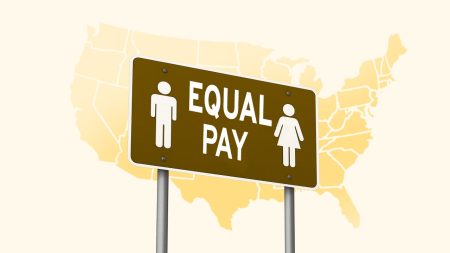Carlina Teteris/Getty Images; Illustration by Austin Courregé/Bankrate
Key takeaways
- Small business owners typically start out with one credit card and add to their portfolio as needed. Start with a single business credit card, establish a responsible credit history and then consider adding more cards that complement your business goals.
- Multiple business credit cards can provide immediate borrowing power, help maintain a low credit utilization ratio, build your business credit and allow you to take advantage of perks and rewards tailored to your business needs.
- Owning multiple business cards can also come with a few disadvantages you should be aware of, such as increased interest on balances, personal liability issues and potential impact on your personal credit score.
- Consider alternatives such as business lines of credit or small business loans for longer-term financing needs.
As a small business owner, you want a credit card that’s right for your venture. But as your business grows and your needs change, you’ll likely find that you want more than one card. Having more than one card can help ensure the financial safety of your business while allowing you to enjoy the perks and rewards that come with these specialized products. Each business credit card has its own attributes, so it’s important to review what they offer and only apply for cards that will help you achieve your goals.
Here’s how to decide whether adding more accounts to your credit portfolio makes sense and what the benefits will be for doing so.
Should you own multiple business credit cards?
Just as consumers sometimes need more than one personal credit card to pay for the things they want and to build good credit, small business owners typically have multiple business credit cards to take advantage of the same strategy.
The main reason you may want a more robust small business credit card portfolio is that it offers immediate borrowing power via credit lines. Although some business cards have high credit limits, especially when compared to personal cards, the credit line on a single business card may fall short for your business needs. When you’re running a business, you’ll likely need sufficient access to capital for everything from startup costs and operations management to emergency coverage.
Bankrate credit cards managing editor Sarah Gage says that leveraging multiple cards as a business owner offers invaluable flexibility, helping to manage months with unexpected expenses and providing a buffer while waiting for client payments.
“As a business owner, having multiple cards gave me the flexibility to manage months with higher-than-expected expenses while waiting for clients who paid on net-30+ terms.
— Sarah Gage, Bankrate credit cards managing editor
The more business credit cards you have, the higher your available credit will be. The more available credit you have, the easier it can be to maintain a low credit utilization ratio — which can help you build business credit.
When to add another business credit card to your portfolio
If you’re just launching a business, you’ll want to start off with a single business credit card. To get your first business credit card, you’ll need to define your business. These business structure definitions can include something like an LLC or S-Corp, but they can also include sole proprietors, freelancers and contractors. Either way, you’ll usually have to submit the business name along with the business structure.
When comparing business credit cards, focus on options that match your business needs and credit rating. When you apply, you will be entering information about both your business and your personal credit information. In fact, almost all business credit cards require a personal guarantee, which means you’ll be responsible for the payments even if all the debt was a result of your business expenses.
Once you’ve established a history of using that business credit card responsibly, you can start exploring other business credit card options. Identify card features you don’t already have, and look for options that can boost your portfolio.
For example, if your first business credit card offers cash back rewards and you expect you’ll be traveling in the future, look for a business travel credit card that offers points or miles on travel-related expenses. Want to be rewarded for taking clients out on the town? Look for a card that offers high rewards on dining and entertainment. Also, be on the lookout for statement credit-earning opportunities related to services or products that you use regularly — from cloud storage to Global Entry or TSA PreCheck credits.
Benefits of owning multiple business credit cards
Unlike small business loans, business credit cards often come with special perks and rewards. You probably won’t get all the perks you want out of a single card, but you can enjoy a variety of benefits by layering them.
Look for cards that offer the type of perks that are going to help you and your business succeed. These might include:
- 0 percent intro APR offers: There’s nothing like borrowing money from a bank without having to pay any financing fees. If you have a business card offering a 0 percent intro APR, you can buy what you need without additional interest being added — at least until the introductory period is over.
- Rewards programs: Different cards offer different rewards programs. Some may give you bonus rewards on phone bills, office supplies or advertising, while others might offer cash back at a flat rate on all purchases.
- Unique perks: Some small business credit cards feature access to accounting systems to keep you organized and help you maximize your tax deductions. They may also offer itemized quarterly or year-end reports with spending categories. Others may not have such robust systems.
- Free employee cards: Want to give certain employees the opportunity to charge on your account? Not all corporate credit cards offer free employee cards. Those that do should let you customize their access so that you’ll be protected against unauthorized charges.
- The ability to build business credit: Not all business cards report activity to the business credit bureaus, such as Dun & Bradstreet or Equifax. In fact, they may only send negative information to those agencies. Before you apply, contact the issuer and ask about its reporting practices.
- Access to additional capital: While not a perk in and of itself, having multiple business credit cards provides your business with access to additional capital without having to apply for a loan. This can come in handy if you are having temporary cash flow issues or you need access to more credit at certain times of the year than others.
Bankrate staff experience
Bankrate credit cards writer Ryan Flanigan says that strategically using multiple business cards can offer various benefits for small business owners. Separating expenses from different ventures not only aids in organization but also presents an opportunity to maximize rewards and benefits by pairing cards effectively, as demonstrated by his own experience.
“Having multiple business cards can allow you to easily separate expenses from different business ventures, which can help you stay organized. Also, pairing different cards together can help you maximize your rewards and benefits. For instance, my Amex Business Gold, Business Platinum and Blue Business Plus combine points together and give me excellent rewards on every purchase while giving me outstanding benefits, working like pieces of a puzzle.”
— Ryan Flanigan, Bankrate credit cards writer
Potential drawbacks of owning multiple business credit cards
While having several business credit cards can offer flexibility and rewards, there are important downsides to consider before expanding your wallet:
- More interest charges and fees: Most business cards come with an annual fee — sometimes amounting to several hundred dollars if it’s a top-tier card. And if you carry balances, you could face high interest rates once any introductory offers expire. These costs can spiral out of control if you’re not tracking each account closely.
- Increased risk of missed payments: Juggling multiple billing cycles and due dates increases the likelihood of forgetting a payment. A single or missed payment can result in late fees, which can damage your business’s credit.
- Cash flow management can become complicated: More cards can mean more credit lines and statements to monitor. Failing to reconcile all transactions accurately can lead to budget oversights or stacking expensive balances, making it far more difficult to manage your cash flow effectively.
- Potential impact on personal credit score: Each new card application triggers a hard inquiry, which can slightly ding your personal credit, and multiple inquiries in a short period can accumulate.
- Personal liability concerns: Most small business cards require a personal guarantee. If your company runs into trouble with any card, you’re personally responsible for repayment, so adding more cards increases your financial exposure.
Alternatives to business credit cards
The best business credit cards typically require good to excellent credit. That could leave a lot of small business owners without access to much-needed capital. Business credit cards are also only a good fit for short-term expenses that you can pay off each month to avoid interest charges. While having at least one business credit card on hand is a solid option, here are a few alternatives to consider:
The bottom line
Business credit cards can help ensure you have access to the cash you need in case of an emergency. They can also help you manage operating costs without having to seek alternative forms of capital. Many business cards also offer the kind of benefits that are especially useful for small business owners — like employee cards, travel rewards and more.
To find the best business credit cards to add to your portfolio, keep in mind the types of cards you already have and what can help you reach your latest business goals. Only apply for cards that you know you can qualify for, and be sure to time your applications instead of applying for multiple cards at once. It’s best to wait three to six months in between applications.
Why we ask for feedback
Your feedback helps us improve our content and services. It takes less than a minute to
complete.
Your responses are anonymous and will only be used for improving our website.
Help us improve our content
Read the full article here












